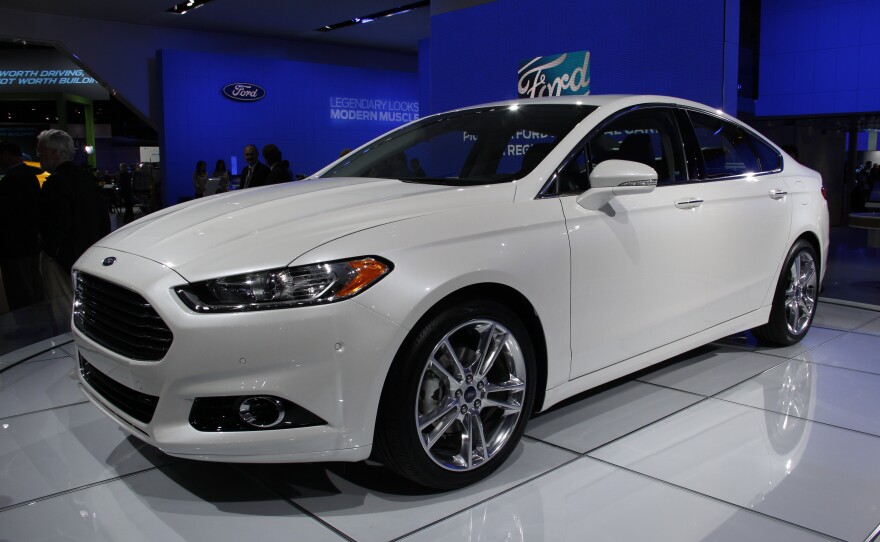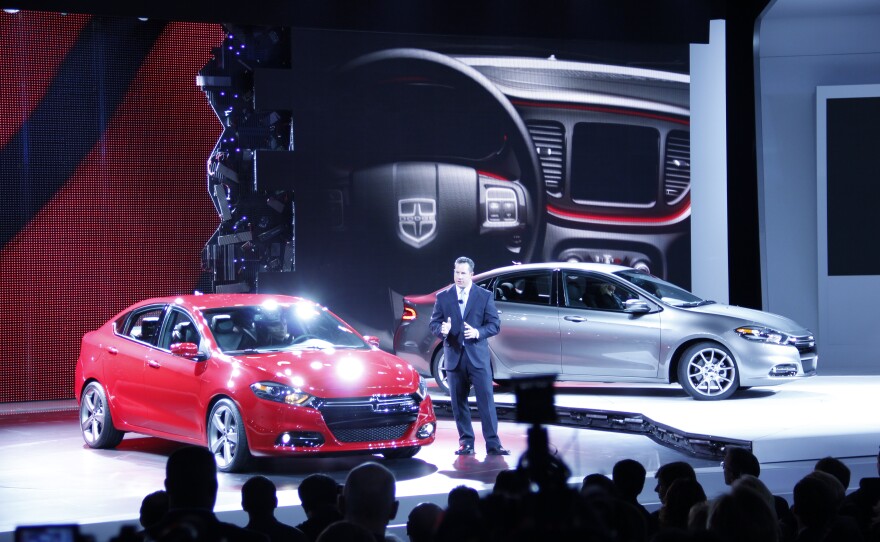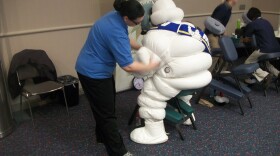Detroit automakers are introducing cars at this year’s Detroit Auto Show that could help them make gains against foreign-based competitors.
Ford Motor Company is unveiling its new Fusion, hoping to topple the traditional midsize sedan leaders, the Toyota Camry and Honda Accord.
The Fusion will also come in hybrid and plug-in hybrid versions, with the plug-in getting the equivalent of 100 miles per gallon.
Ford CEO Alan Mulally says the company sold a record number of Fusions in 2011 -
"It had its best sales year ever," Mulally told reporters after revealing the Fusion at Joe Louis Arena. "So the new Fusion is going to build on that success and be very, very popular with consumers."
But Ford Executive Chairman, Bill Ford, Jr., says the company is not going to pursue an increase in market share for the coveted midsize sedan segment just for the sake of market share.
"We are not going to play that volume game," he says. "If it happens organically, great, but we don’t have some magic number on the wall that we’re all pushing toward."
Meanwhile, Cadillac on Sunday introduced a new small luxury vehicle, the ATS, to compete against BMW and Mercedes Benz. GM North American President Mark Reuss says the car is a "true driver's car," and can compete head to head with the Mercedes Benz C class and the BMW 3 series.
BMW North America head Ludwig Willisch says a new competitor is always a concern, but he's confident that upgrades to the new 3-series will enable the company to keep its leadership position.
For its part, Chrysler introduced a new small car called the Dodge Dart. The car will compete against small cars made both by its Detroit rivals and foreign-based companies including Toyota, Honda and Hyundai.










